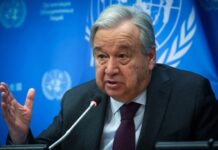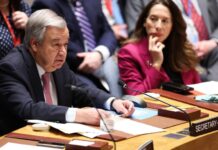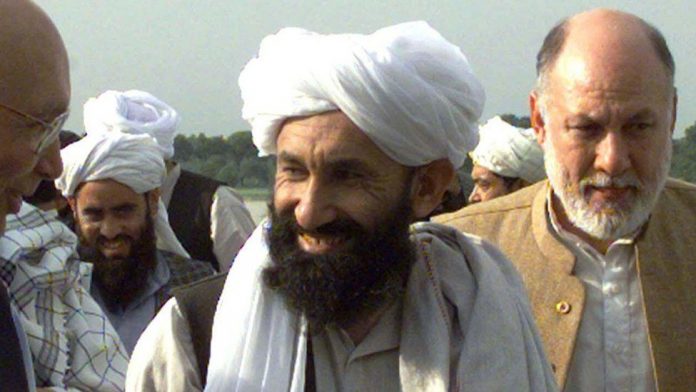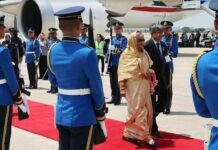The Taliban have announced an interim government in Afghanistan, declaring the country an “Islamic Emirate”.
It will be led by Mullah Mohammad Hassan Akhund, one of the movement’s founders, who is on a UN blacklist. The interior minister will be a feared FBI-wanted leader of the Haqqani militant group, reports BBC.
The Taliban seized control of most of the country on 15 August, ousting the previous elected leadership. The announcement of the acting cabinet is a key step in the formation of a Taliban government.
A statement attributed to Taliban Supreme Leader Mawlawi Hibatullah Akhundzada told the government to uphold Sharia law.
The Taliban want “strong and healthy relations with our neighbours and all other countries based on mutual respect and interaction”, the statement, released in English, said – with the caveat that they would respect international laws and treaties “that are not in conflict with Islamic law and the country’s national values”.
Hibatullah Akhundzada has never made a public appearance. This is the first message appearing to come from him since the Taliban took control last month.
The Taliban have previously said they wanted to form an inclusive government. However, all of the cabinet ministers announced on Tuesday are already established Taliban leaders.
Hassan Akhund, the new prime minister, served as deputy foreign minister from 1996 to 2001, when the group were last in power.
Sirajuddin Haqqani, the new acting interior minister, is head of the militant group known as the Haqqani network who are affiliated with the Taliban and have been behind some of the deadliest attacks in the country’s two-decade-long war – including a truck bomb explosion in Kabul in 2017 that killed more than 150 people.
Unlike the wider Taliban, the Haqqani network has been designated a foreign terrorist organisation by the US. It also maintains close ties to al-Qaeda.
According to the FBI’s profile on Haqqani, he is “wanted for questioning in connection with the January 2008 attack on a hotel in Kabul… that killed six people, including an American citizen”.
It adds: “He is believed to have coordinated and participated in cross-border attacks against United States and coalition forces in Afghanistan. Haqqani also allegedly was involved in the planning of the assassination attempt on [former] Afghan President Hamid Karzai in 2008.”
The Haqqani network has also been blamed for an attack on the US embassy and nearby Nato bases in Kabul on 12 September 2011. Eight people – four police officers and four civilians – were killed in that attack.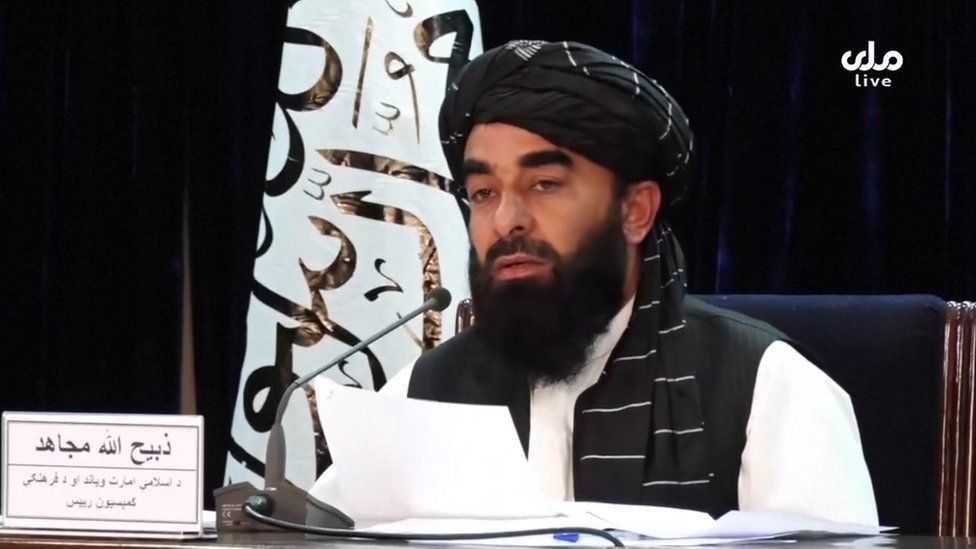 Mullah Yaqoob as acting defence minister. He is the son of Taliban founder and late supreme leader Mullah Omar. He first came to prominence in 2015 when, in an audio message released after his father’s death, he called for unity within the militant group.
Mullah Yaqoob as acting defence minister. He is the son of Taliban founder and late supreme leader Mullah Omar. He first came to prominence in 2015 when, in an audio message released after his father’s death, he called for unity within the militant group.
Taliban co-founder Mullah Abdul Ghani Baradar will be one of the PM’s deputies. Baradar was previously head of the Taliban’s political office, and oversaw the signing of the US withdrawal agreement last year.
Amir Khan Muttaqi is acting foreign minister, a senior leader who took part in negotiations with the US about their withdrawal.
A movement which has long moved in the shadows, whose names would surface only on the world’s terrorism watch lists, is now announcing titles used in governments the world over.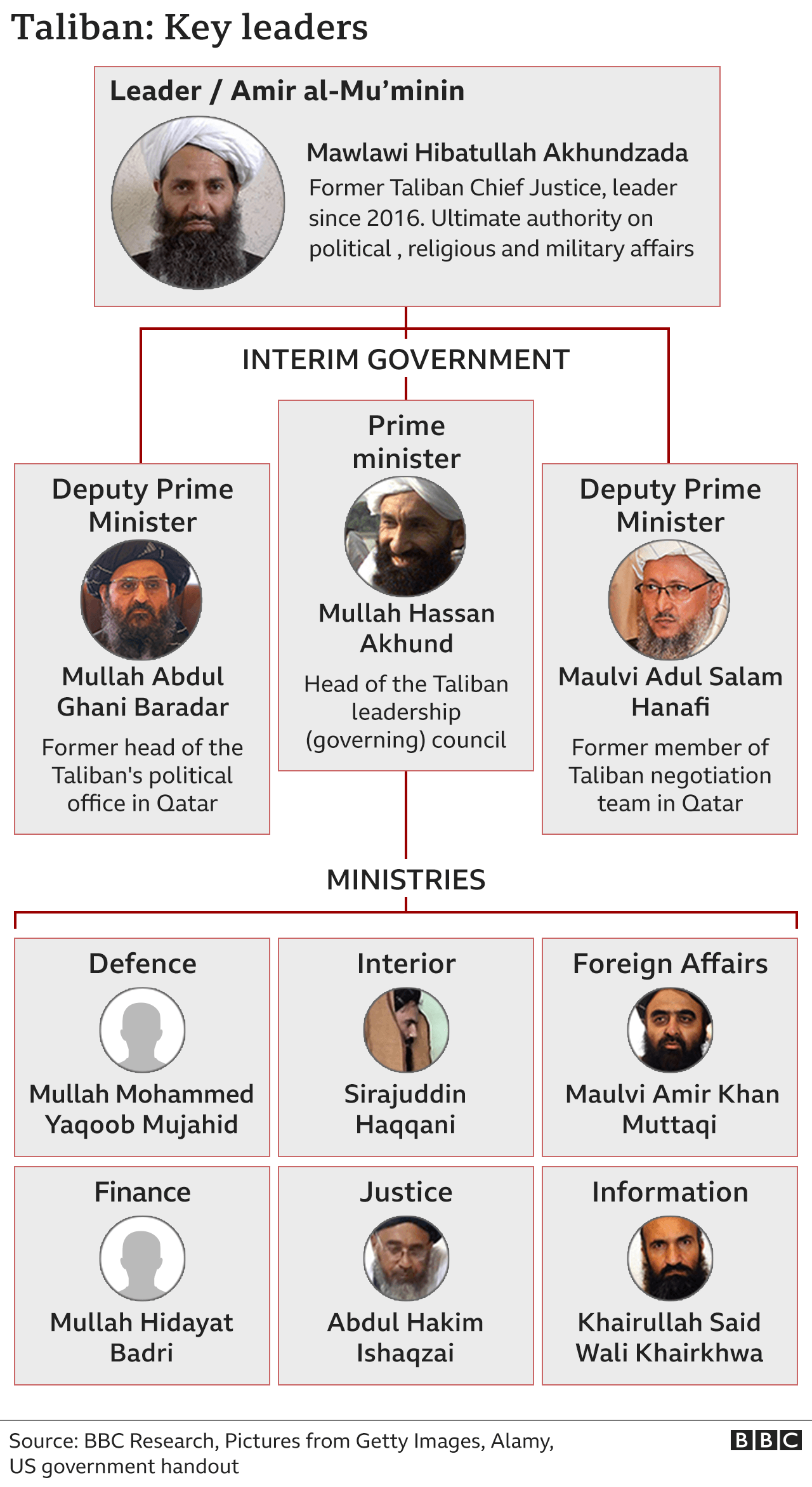
Acting prime minister Mullah Akhund appears as a compromise candidate after reported rivalries among leading military and political figures who will serve under him.
Its caretaker nature also provides breathing space as the Taliban move from guns to government.
It also underlines the Taliban view that a Taliban victory can only mean Taliban rule. Sources say they pushed back against calls for an “inclusive” government. They balked at including former political figures and officials, who’ve had their turn at the top, and especially those tainted by corruption.
“Why should we let others pick our cabinet when other countries pick their own? “was one retort.
As for women, there was never a chance they would be given a ministerial role; the Ministry of Women’s Affairs seems to have been, for now, abolished altogether.
The announcement comes amid reports that the Taliban have carried out some retribution attacks, despite saying they would not.
Sources inside Afghanistan previously told the BBC that some Taliban fighters have been searching for, and allegedly killing, people they promised to leave in peace – including two senior police officials.
Women who fled the country said they had received messages from the Taliban, urging them to return and “live in the Islamic way”.
“Since the Taliban have come to power they haven’t stopped killing,” a former Afghan special forces soldier still in the country told the BBC. He said some of his former colleagues had been killed.


